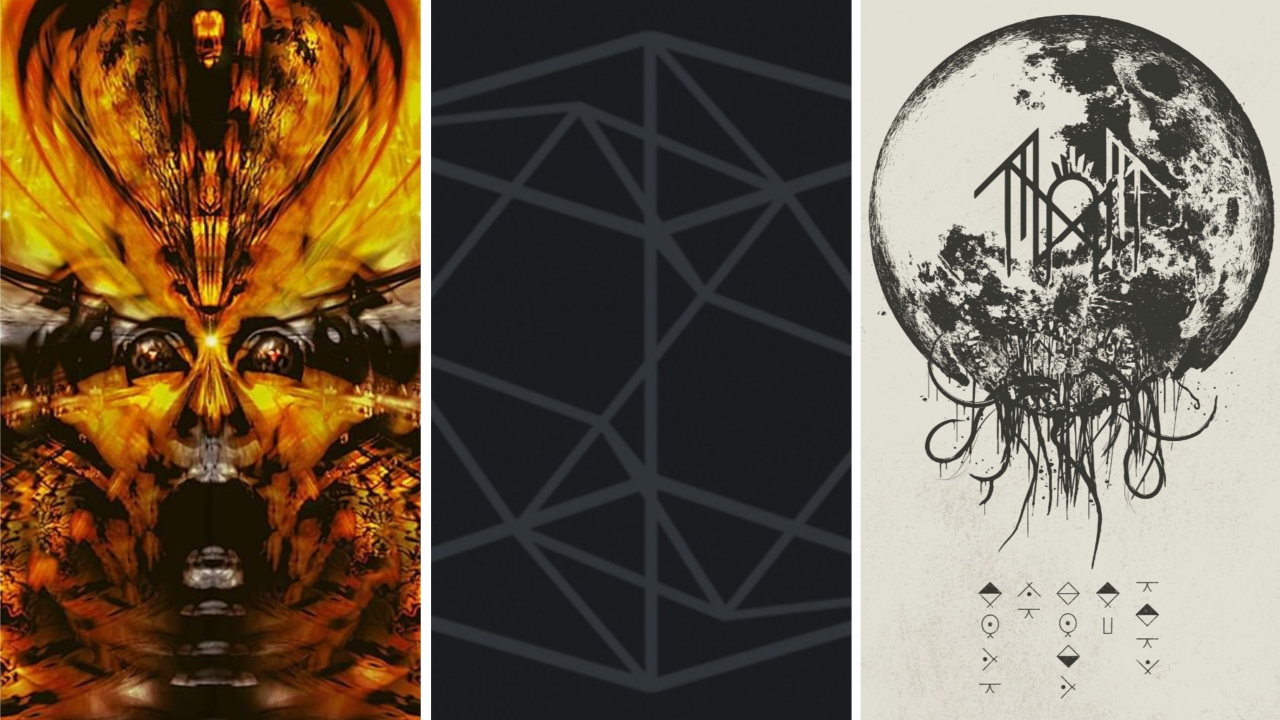
“But does it djent?” It’s a question that’s haunted a generation (djeneration?) of progressive metal bands. Ever since Meshuggah first stormed onto the scene in the mid-1990s with their polyrhythmic extremity and headbangable backbeats, the parameters for top-shelf tech-metal have changed. The sound of the Swedes’ dense, eight-string guitars coined the onomatopoeia “djent”, and countless bands have taken their influence in their wake.
Djent has now risen from the muse of bedroom cult projects to the sound of bona fide mainstream superstars. So, in celebration, Hammer’s compiled a short list to get you up to date. Here’s the history of djent in just five must-hear albums:

Meshuggah – Nothing (2002)
You can’t detail the history of djent without mentioning Meshuggah. The tech-metal behemoth forged their unique sound in the lonely, snowy town of Umeå, with the isolation and weather affording them plenty of time in the rehearsal studio. However, it wasn’t until 2002’s Nothing that the band truly became one of a kind.
Nothing totally dropped the thrash hallmarks of Meshuggah’s ’90s material. Guitarists Fredrik Thordendal and Mårten Hagström upped their string count to eight, while drummer Tomas Haake placed a greater emphasis on groove than blistering pace, yet still retained his polyrhythmic technicality. In the annals of both Meshuggah and progressive metal, this masterpiece is a seminal text, redefining the works of both the band and their genre for years to come.
Periphery – Periphery (2010)
The djent movement post-Nothing was defined by two world-changing phenomena: Meshuggah themselves and the internet. Thanks to fledgling social media like MySpace, musicians suddenly didn’t need a live band to share their music, and there was a wave of Thordendal- and Hagström-inspired bedroom guitarists posting their material online. Among those players was Periphery’s Misha Mansoor, with his band eventually becoming one of the first online sensations to score a conventional record deal.
When Periphery released their debut album through Century Media in 2010, it – like Meshuggah before it – also had its own impact on the progressive scene. The mixture of the Americans’ immense three-guitar attack with the more melodic tones of frontman Spencer Sotelo popularised what’s now called “djentcore”: a micro-genre continued by the likes of Currents and Spiritbox.
Tesseract – One (2011)
On One, Tesseract offered a distinctly British take on the flourishing djent sound. Guitarist Acle Kahney had formed the band as a Milton Keynes bedroom project eight years prior, and over time his penchant for layering clean, Pink Floyd-esque lines on top of hulking seven-string riffs became a signature. (The band now affectionately call it ‘Milton cleans’.)
One then expanded that technique into an ambitious and classy prog giant. The six-song Concealing Fate suite demonstrated a bravery none of the band’s peers could claim, while singer Daniel Tompkins’ balancing of melodic and growled singing without caving into metalcore cliches made them both timely and fresh. More magnificent albums, especially 2013’s Altered State and 2023’s War Of Being, have since made Tesseract a measuring stick in UK prog.
Jinjer – King Of Everything (2016)
During the early 2010s, the progressive metal scene was suddenly saturated with bands trying to follow the lead of Periphery, Tesseract and Animals As Leaders. Then Jinjer emerged and showed all those wannabes how you really keep a pioneering sound fresh in its second wave.
The Ukrainians signed to Napalm for their second album, 2016’s King Of Everything, and the music instantly made the band a sensation. Their compositions were scorchingly heavy, yet also wildly thrashy in a way that hadn’t quite been heard since Meshuggah’s Destroy Erase Improve. Meanwhile, singer Tatiana Shmayluk became a new heavy metal icon, her bowel-quaking roars and beautiful, higher-pitched melodies sounding like the product of two different people. Single Pisces going as viral as it did only affirmed that Jinjer were breakout stars.
Sleep Token – Take Me Back To Eden (2023)
By the 2020s, the defining trait of djent – downtuned, chugging, seven- or eight-string guitars – had become less a genre signature than a technique worming its way into other styles. Case in point: Sleep Token. The UK masked metal cult are one of the hottest heavy bands going right now, and the djent approach to playing is a key component in their sound. Those brutally progressive riffs, however, are sublimely contrasted against lashings of melodic pop.
On Take Me Back To Eden, Sleep Token doubled down on their genre-smashing ways with some R&B and funk. Meanwhile, the romantic crooning of frontman Vessel shot the band into the supernova. TikTok got collectively frisky for single The Summoning in January, then that momentum steamrolled to the point that the band sold out a 10,000-capacity arena in 10 minutes.







